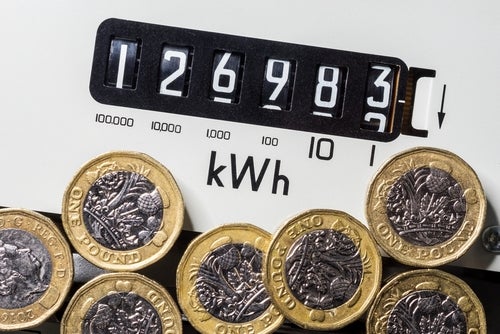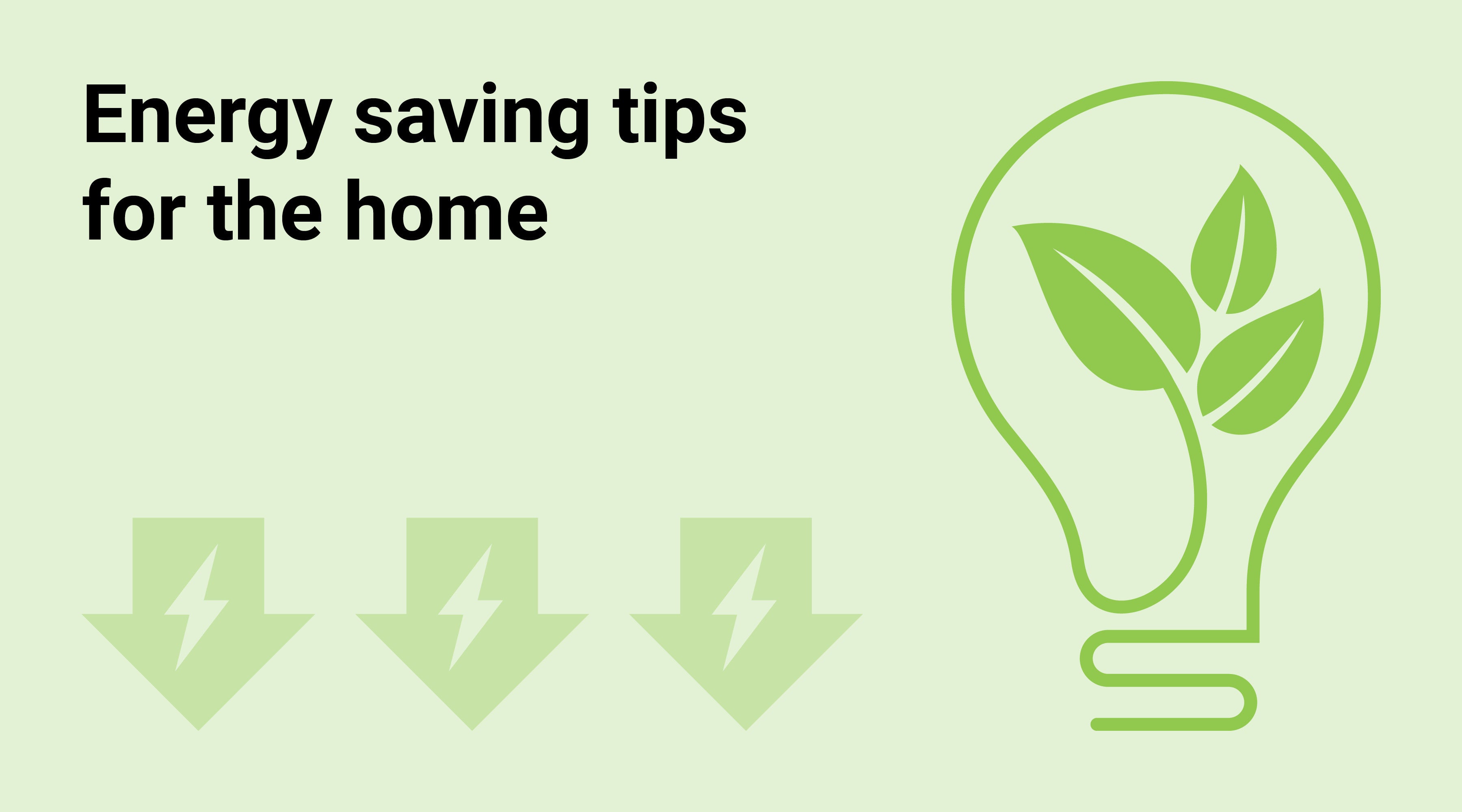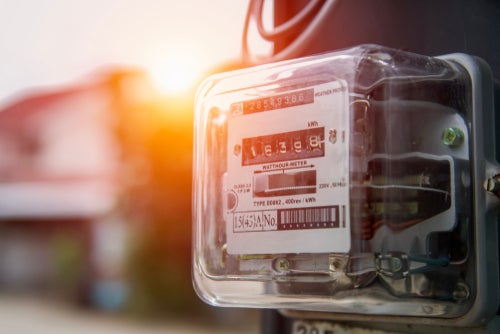Energy comparison
Switch energy in minutes
The price cap is due to drop to £1,568 from 1 July - a new two-year low for energy prices. If you're on a standard variable tariff, this is a great time to switch to a fixed deal. Run an energy comparison to see fixed energy deals that are currently available.

Why switch energy?
The main reason to switch energy is to find a cheaper deal than the one you’re currently on. This hasn’t been easy in the past couple of years because of the wholesale energy market crisis causing high prices. As the market stabilises, though, suppliers have started offering affordable fixed energy deals again. You may still wish to stay on a standard variable tariff if you're on one. But if you want certainty over what you’re paying, run an energy comparison now to see what you could switch to.
How to compare energy prices
Comparing energy prices on Uswitch couldn’t be easier. The process only takes a few minutes and could help you save.

Tell us your postcode
Select your address from the list provided. You may also need to give us a couple of details about your plan, so it might help to have a bill to hand.

Compare energy deals
The deals currently available on Uswitch will appear in the results table, along with their estimated annual costs which are based on your usage details.

Confirm your switch
Once you've found a deal you'd like to switch to, confirm your switch and we'll do the rest! Your switch should be completed within five days.
What should I look for when comparing energy deals?
When comparing energy deals, the annual price of the different deals may be the main thing to consider given the current state of the market.
Other areas might be important to you, such as whether a deal uses renewable energy. Energy comparison sites like Uswitch help you quickly compare energy deals that work for you and handle the energy switch on your behalf.
Can I compare gas and electricity deals individually?
Those who use both gas and electricity may prefer to compare energy prices for individual fuels, as opposed to combining them in one deal. This can sometimes work out cheaper than a dual fuel deal depending on the supplier. You can do this on the results table by using the filters provided.
Can I get a green energy deal with Uswitch?
If you’re looking to switch energy to a greener option, look out for our Green Accreditation badges on the results table.
Our independent panel rates every green deal as either Bronze, Silver or Gold. This depends on how ‘green’ the deal is and any wider sustainable causes that suppliers are involved in. Clicking on a specific deal will tell you why it’s been given its rating.
Which fixed energy deals are currently available through Uswitch?
As the energy switching market returns, more fixed deals are now available on our website. Compare energy today to see personalised costs for you.




Costs are based on average bill sizes for a medium energy user on a dual fuel plan paying by monthly direct debit, and averaged across all regions. This is updated hourly with energy plans which are available to switch to through Uswitch.
See how these energy deals stack up for you
In just a few minutes, you can compare our latest energy deals and any savings you could make.

What should I look for when comparing energy suppliers?
Historically, many customers haven’t been concerned with comparing different energy suppliers. The annual cost of the deal is more important to them.
However, with cheap energy suppliers in short supply and many smaller suppliers dropping out of the market in recent years, customers are now asking “which energy supplier is best for me?”.
For instance, those who want to switch energy might feel more comfortable with an established energy supplier. Also, energy suppliers’ customer service could be a key point to consider, so make sure you check out different companies’ reputations if this is an important element for you. Some suppliers may also have perks and rewards for customers, which you may feel would be worth looking into.
Also, keep in mind that some energy switching options may be limited to existing customers, so there may not be as much choice as you’d expect.
What type of energy tariff is best for me?
Fixed rate tariff
Fixed rate tariffs have fixed unit rates and standing charges for the duration of the contract. This means they’re not affected by wholesale market or price cap changes, so you have price certainty during your contract.
Standard variable tariff
Standard variable tariffs are traditionally the most expensive tariff type, though this has changed in the past few years. They're capped by the price cap, which means that if the price cap increases, so do your unit rates.
Dual fuel tariff
Dual fuel tariffs allow you to get gas and electricity from the same supplier, which can work out cheaply. It's worth comparing dual fuel deals and separate gas and electricity deals to work out the best option for you.
Renewable energy tariff
Green energy is increasingly common. Most suppliers now offer tariffs that feature electricity generated from renewable sources (though renewable gas is more difficult to achieve). Use table filters to see green deals when you compare.
Prepayment tariff
Prepayment tariffs require energy to be bought in advance and topped up via your meter. This is often more expensive than being on a credit meter. Suppliers usually offer at least one prepayment tariff.
Time-of-use tariff
Time-of-use tariffs such as Economy 7 offer multiple unit rates for day and night-time use, with night-time use usually being significantly cheaper than day-time use. This can be good for EV owners with home chargers.
Looking for a specific type of energy?

Gas-only energy deals

Electricity-only energy deals

Dual fuel energy deals
Should I switch energy now?
With the price cap at a two-year low and fixed deals returning to the market, you may be able to switch energy. The potential average savings you may see against the price cap are about the highest they've been since before the energy market crash. The price cap is predicted to decrease again in the summer, so it's hard to predict whether fixing now or sticking with a standard variable tariff will save you money in the long run.
If you can't see a deal that's right for you yet, make sure you sign up to be switch-ready and hear about our exclusive flash energy offers.
What should I consider when I switch energy?
- Do consider exit fees
You may change your mind about your fixed deal and want to switch. If this happens after your 14-day cooling-off period, you might have to pay an exit fee. Not all tariffs have them but most do, so make sure you know whether yours does.
- Do consider the length of the deal
Most deals are for 12 or 24 months. During this time the price cap could rise or fall depending on market conditions, so consider how long you would like to stay locked in for.
- Do stay informed
Keep a close eye on the market and run regular comparisons to see what deals are on offer. If you sign up for alerts, you can stay close to what’s happening in the energy market and find out when a good deal comes along.
Make sure you can afford the deal you choose and don’t rush into one that you'll struggle to pay for.
The price you pay through Direct Debit each month is usually based on your estimated energy usage over a year. This may not be the actual cost. Make sure you look at the unit rate and standing charge to work out how much you will be charged for your energy usage. You can also see how it differs from what you’re paying now.
“Today I used Uswitch Android App to switch my electricity and gas provider. The process could not have been simpler! From start to finish it took me less than five minutes and I saved (projected savings) just over £212 on my annual costs of gas and electricity! Thank you so very much Uswitch!!!”
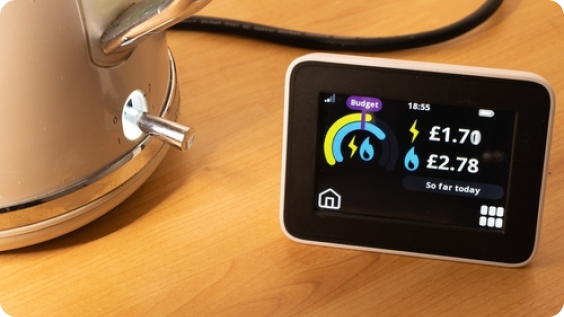
Why are energy prices so high?
Wholesale gas prices significantly increased in September 2021. This was because of various factors putting pressure on supply and demand. This caused a knock-on increase to customers’ energy prices, which also increased via the energy price cap.
Prices have since come down and allowed energy suppliers to bring new energy deals back to the market, but energy bills are still high compared to pre-crisis.
Will energy prices go up or down in the next few months?
It's difficult to predict what will happen to energy prices in the next few months. While the price cap has dropped to a two-year low, Cornwall Insight, the energy analyst, says that the next price cap (to be announced in August 2024) could rise again slightly. The situation could change quickly, though, so keep an eye on market news if you're thinking of switching.
You can see the latest predictions below.
| Price cap level | Annual energy cost for an average usage medium-sized household paying by Direct Debit |
|---|---|
| 1 July to 30 September 2023 | £1,976 |
| 1 October to 31 December 2023 | £1,834 |
| 1 January to 31 March 2024 | £1,928 |
| 1 April to 30 June 2024 | £1,690 |
| 1 July to 30 September 2024 | £1,568 |
| Predicted energy price cap (1 October to 31 December 2024) | £1,762 |
Find out more about the energy market
Be the first to know about new energy deals
We've recently offered our switch-ready customers exclusive fixed deals from big suppliers such as EDF and British Gas.
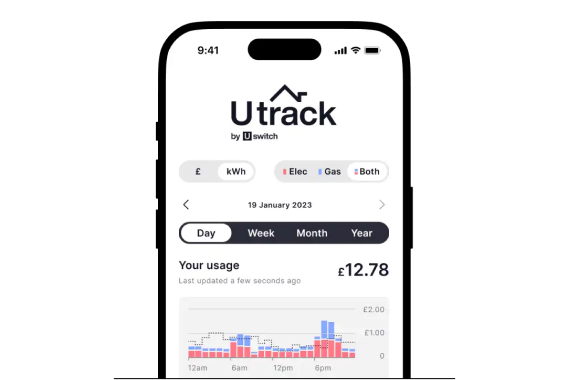
Control your energy with our free app, Utrack
Utrack is a free mobile app that connects to your smart meter and can help you track your home energy usage.
You can get:
- Detailed insights about energy usage throughout your home
- Daily, weekly, monthly and yearly reports and data
- Energy-saving tips and advice.
How to save on your energy bills at home
As well as switching your energy deal, you can also help to reduce your bills by using less energy around the home. Here are six things you can do this summer:
Reduce shower time to four minutes
Taking four-minute showers will mean you use less water and less energy is used heating the water. It could save £55 per year.
Use an air fryer instead of an oven
Air fryers use less energy than an oven, so if you have one, use it as much as possible to save energy.
Reduce dishwasher use by one run per week
If you have a dishwasher, try to use it less. Reducing usage by one run per week could save £12 per year.
Wash clothes at lower temperatures
You should only need to wash clothes at 30 degrees rather than 40. Doing this could save £24 per year.
Dry clothes outside (if possible)
If you have outside space, you can save energy by air-drying clothes rather than using a tumble dryer.
Use LED lightbulbs in the garden
If you spend your evenings in the garden, swap halogen bulbs for LEDs. Each bulb swapped could save you £3-4 per year.
Find out more about saving on energy bills

Save money on your business energy
Compare prices from trusted UK business energy suppliers and get your next business energy deal in minutes.
Frequently asked questions
Energy prices
How to switch energy
Types of energy



